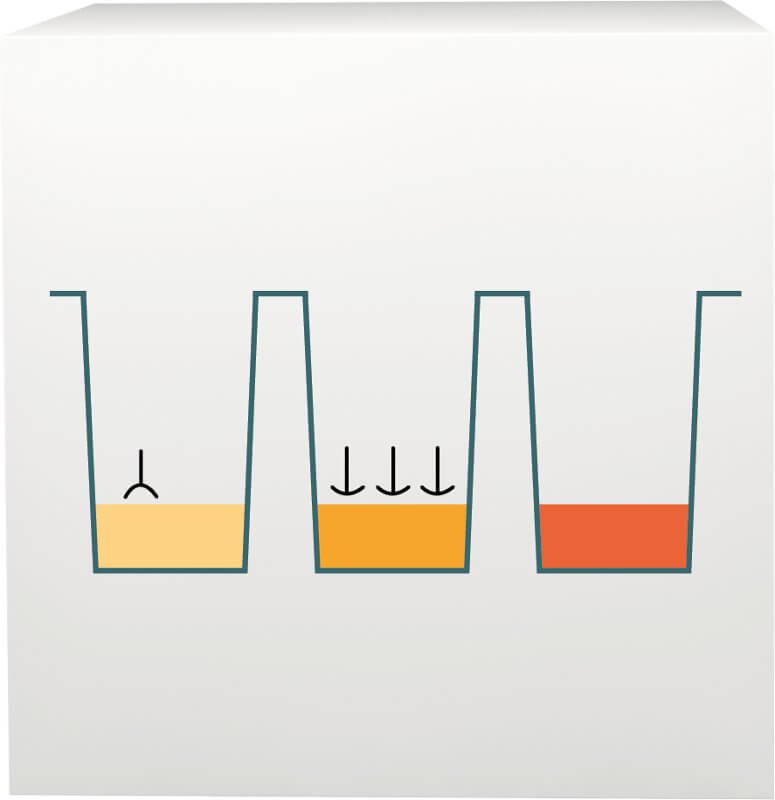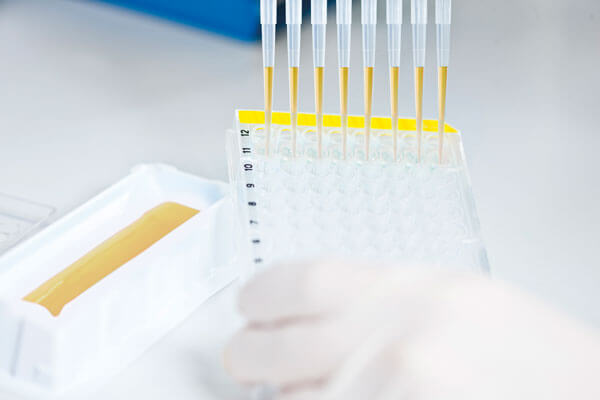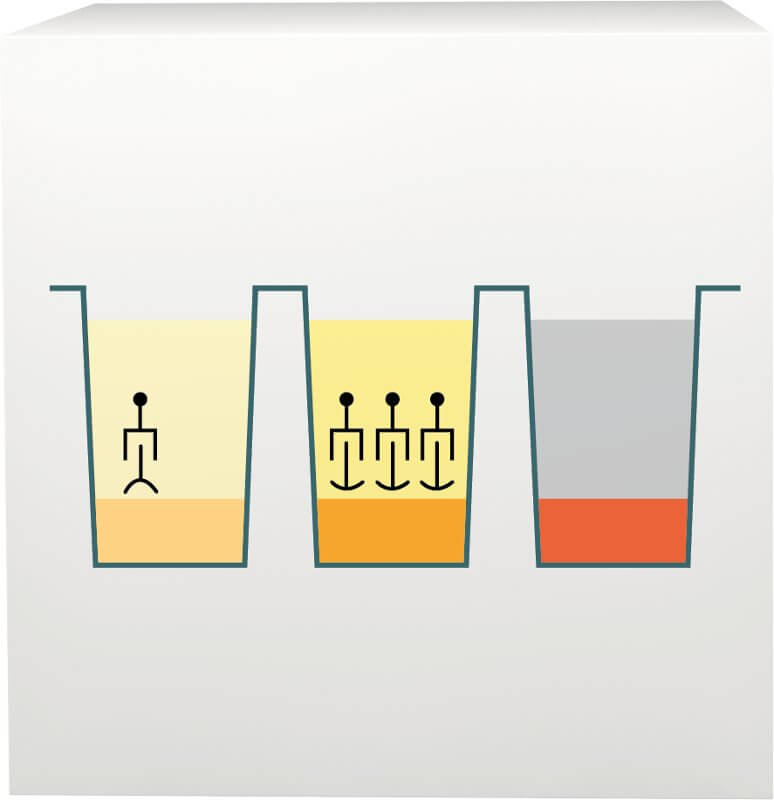Reliable diagnostics: Your IgG food allergy test
ImuPro detects IgG antibodies to food allergens in a high quality laboratory analysis – precisely and reliably
Your IgG food allergy test will be performed by a highly professional and specialized in vitro diagnostic laboratory. The lab will analyse your serum or capillary sample and determine the presence of specific IgG antibodies to a broad variety of foodstuffs. The antibodies are detected by their ability to bind to specific proteins from up to 270 analysed foods. Based on the results of the antibody titre, the foodstuffs are then categorised into three groups: “not elevated”, “elevated” and “highly elevated”.

Step 1
Food proteins are bound to the surface of a micro titre plate. Each of these plates are treated with a different food.

Step 2
After this, your sample is probed within those cavities during the analysis. If your sample contains specific IgG antibodies to a certain food, they will then bind to these food proteins, which are bound to the cavity of the micro titre plate, as they would also do within your body.
The foodstuffs are then categorised into three groups based on the results of the antibody titres:
- Not elevated
- Elevated
- Highly elevated
The specific IgG concentrations determined by the test do not necessarily reflect the occurrence or the severity of serious clinical symptoms. They offer the basis for an elimination and provocation diet. ImuPro guides you through this process with three phases: the elimination, the provocation and the stabilisation phase. Learn more!
Note: ImuPro does not examine classic IgE-mediated allergies (type I) or intolerances to lactose, fructose and histamine. In such cases, specific test systems should be applied.


